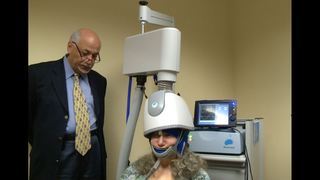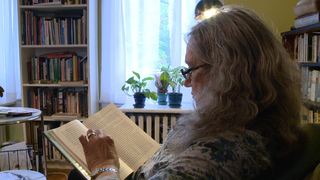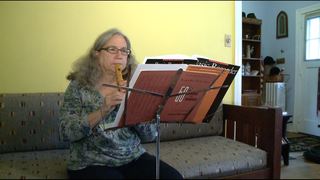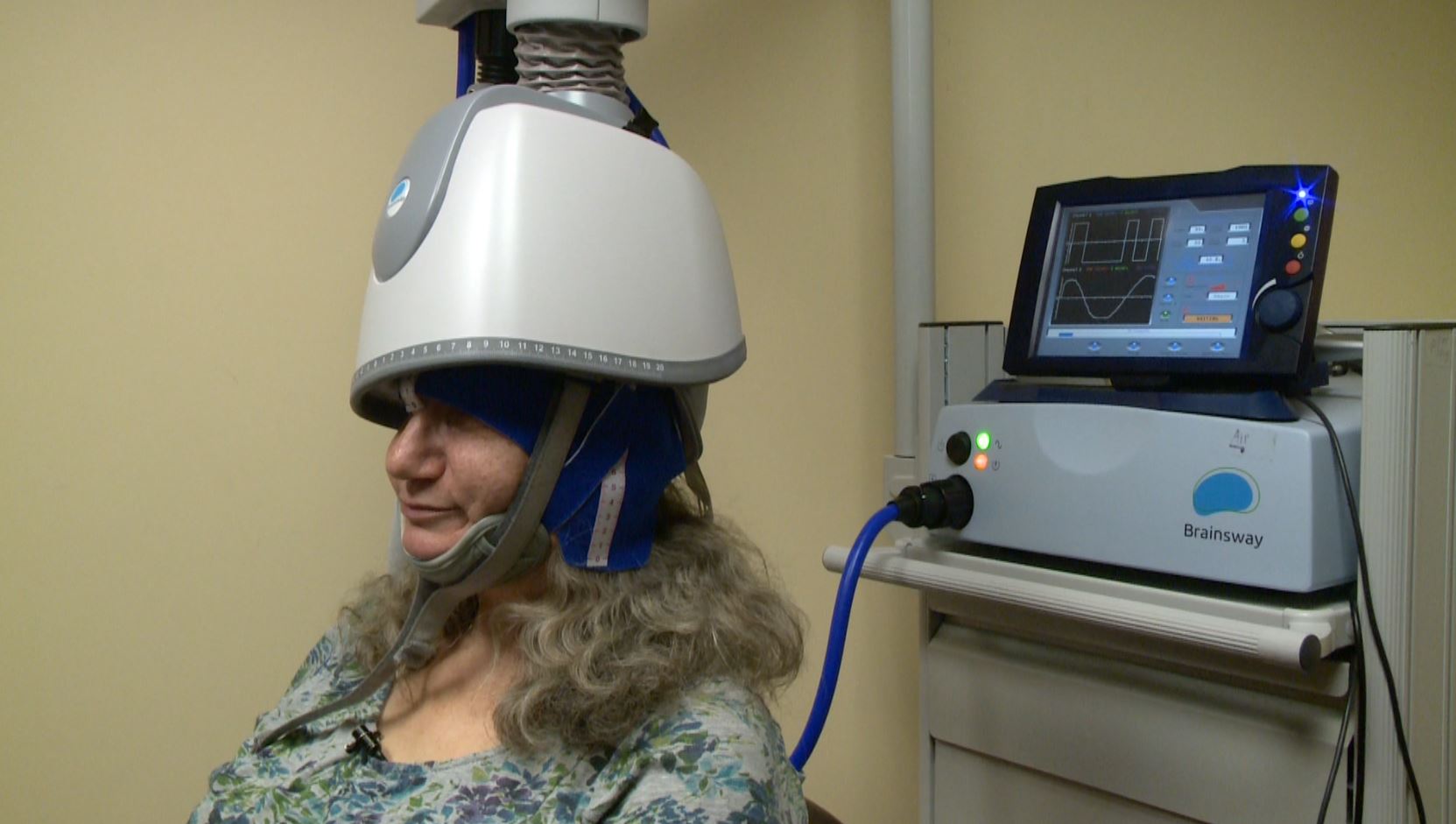GAITHERSBURG, Md. (WUSA*9)--Rebecca had her first bout with depression when she was 16. In her 60's now, Rebecca has taken almost every anti-depressant known to mankind. She says she's had so much psychotherapy, she's run out of things to say. Nothing, says Rebecca, truly helped her during the real lows. Then her Gaithersburg psychiatrist suggested she try something called deep Transcranial Magnetic Stimulation or dTMS. A sort of depression fighting helmet.
The machine looks like one of those old-fashioned hair dryers and it's been a game changer for Rebecca's mental health.
"It's like the difference between living and just existing," says Rebecca. "I was really, really sick. I had a lot of suicidal thoughts.
TMS is okayed by the Food and Drug Administration for people who cannot tolerate, or benefit entirely from antidepressants.

The sound of pecking emits from the helmet every 20-seconds. That pecking sound is a pulsating magnetic field, similar to what is used in MRI's, says Rebecca's psychiatrist, Dr. Wagdi Attia, M.D., Ph.D.
"Kind of like you would imagine a Woodpecker going on a tree. Just tap, tap, tap, tap," says Rebecca as she undergoes the treatment.
The magnetic energy is targeting a part of Rebecca's brain involved in mood regulation. This treatment is time-consuming. At first, there are daily sessions over 4-to-5 weeks. Each one lasting 20-minutes.
"Then we do twice a week for 2 to 4 weeks. And then once a week," says Dr, Attia. Rebecca calls these once a week sessions "boosters."
TMS doesn't work for everybody, and some patients, like Rebecca, still take antidepressants. However, since TMS, the extreme lows are gone and Rebecca, who is a librarian, has joy in her life again.

"The difference is you want to be alive," says Rebecca. 'You want to experience things. To do things. I like to read. I couldn't concentrate enough to read because of intrusive thoughts. Music gives me joy. Nothing really remarkable. It's just that I couldn't enjoy those things before. To be in the moment is like a gift."

TMS is different than Electroconvulsive Therapy, which uses an electric shock and requires sedation. For TMS, patients are awake and it is done on an out-patient basis.
When it comes to side effects, some patients report a little irritation in the scalp area where the treatment is targeted. Also, some patients report a mild headache.
As for insurance coverage, you need to check with your provider. Not all policies cover TMS.


